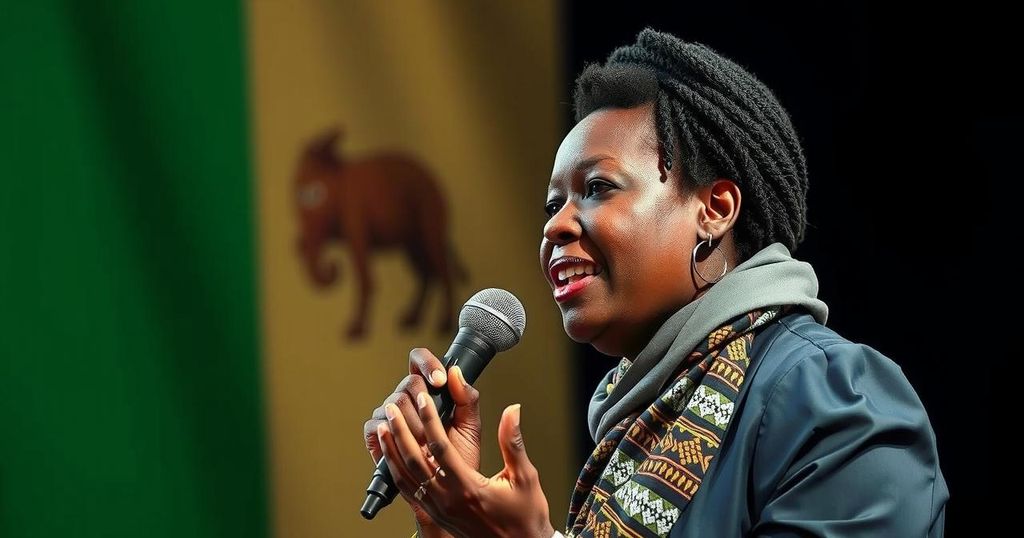Namibia Elects Its First Female President Amidst Electoral Controversy

Namibia has elected Netumbo Nandi-Ndaitwah as its first female president, winning 57% of the vote in a disputed election that extends the ruling Swapo party’s 34-year governance. Despite her victory, opposition parties are contesting the results due to various irregularities, with a backdrop of declining support for the ruling party. Nandi-Ndaitwah’s leadership is seen as a stabilizing force, diverging from regional trends of discontent against long-standing ruling parties.
Namibia has made history by electing its first female president, Netumbo Nandi-Ndaitwah, who emerged victorious in last week’s contentious election, securing 57% of the votes. Her victory marks a continuation of the ruling Swapo party’s dominance, which has spanned 34 years since the nation’s independence from South Africa in 1990. Following the announcement of the results, Nandi-Ndaitwah asserted, “The Namibian nation has voted for peace and stability.”
Nandi-Ndaitwah, aged 72, is a prominent figure in Namibian politics, having been part of the underground independence movement during the 1970s. Her elevation to the presidency followed the passing of President Hage Geingob in office, and she had previously served as foreign minister. Despite her significant win, opposition parties have challenged the election results, citing various technical irregularities such as ballot shortages and an extended voting period, which they claim was illegal. The opposition, led by Panduleni Itula, who received 25.5% of the votes, plans to contest these results in court, further complicating the political landscape.
Nandi-Ndaitwah’s win is noteworthy as it contradicts trends observed in neighboring southern African countries, where incumbent liberation parties have lost significant support from younger voters. While Swapo garnered 53% of the parliamentary vote, a decline from 65% previously, her personal success reflects her reputation as a stable and principled leader, unscathed by the corruption allegations surrounding some party members. This election sets Namibia apart in a region experiencing political turmoil, with signs of discontent bubbling in countries like South Africa and Botswana.
The recent presidential elections in Namibia not only signify a milestone in the nation’s governance by welcoming its first female president but also bring to light ongoing tensions within the political system. Netumbo Nandi-Ndaitwah’s victory reflects her party’s persistent reign; however, issues such as technical malfunctions during voting and the opposition’s claims of irregularities highlight challenges to democracy in Namibia. As the country stands at a crossroads, Nandi-Ndaitwah’s leadership will be critical in navigating these complexities.
In conclusion, the election of Netumbo Nandi-Ndaitwah as Namibia’s first female president marks a significant historical achievement while also raising concerns about the legitimacy of the electoral process. The challenges posed by opposition parties and calls for legal appeals indicate a contentious political atmosphere. As Namibia continues to uphold its legacy of stability and peace, the attention will now shift to how Nandi-Ndaitwah leads the nation amidst these emerging political tensions.
Original Source: www.theguardian.com







